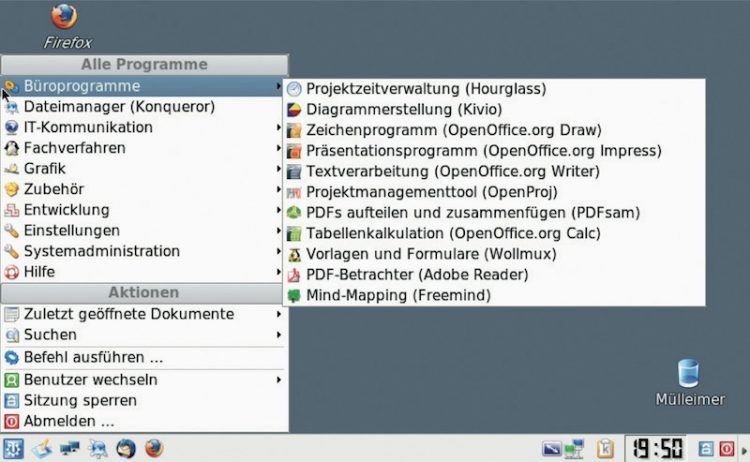It may have taken the best part of a decade, but the City of Munich says its decision to switch to open-source software has saved an estimated ten million Euros.
Not that this saving happened over night. The city first began to seek an open-source antidote to its Microsoft dependence in 2003. With some 1.5 million citizens, thousands of employees, and tens of thousands of government workstations to consider, its initial shopping list was suitably strict, spanning everything from avoiding vendor lock-in and receiving regular hardware support updates to having access to a wide array of free applications.
Its first stage of migration in 2006 saw Debian rolled out across a small percentage of workstations, with the remaining Windows computers switching to OpenOffice.org, Firefox and Thunderbird.
Debian was swapped for a custom Ubuntu-based distribution named ‘LiMux‘ in 2008 after the team handling the project ‘realised Ubuntu was the platform that could satisfy our requirements best.’

LiMux version 4 is the current release and is based on Kubuntu 10.04 LTS so uses the KDE 3.5 desktop by default. The upcoming release of LiMux 5 will be based on Kubuntu 12.04 LTS and will use KDE 4.
The entire migration process was announced as ‘complete’ in 2013.
€10,000,000 Saved and Counting
So how much did the City of Munich save by ditching Windows for FOSS-friendly software? Based on reports given to the media the project has saved at least €10 million over the duration of the migration.
This number reportedly includes both the cost of hiring of external companies to assist, manage and implement workarounds, plus the internal cost of investing in training, management and support.
Despite there still being a cost (no, it’s not as simple as popping a LiveCD into the tray of each PC and hoping for the best) the saving is still evident:
- Switching to open-source: €23 million
- Upgrading to/licensing Windows 7 & Microsoft Office: €34 million (estimated)
These figures also don’t take into account the long term savings to be had from not being tied to a specific manufacturer or support team. The flexibility, dependability and stability of open-source software means further savings are almost guaranteed.
Peter Hofmann, project manager for the City of Munich, told Canonical of the switch:
“By combining the low costs and freedom of open source software with ongoing support for the hardware and applications we need, it was one of the critical elements to the success of this project. Most important was the backing of our politicians throughout the project.”
The City of Munich has been at the forefront of pushing adoption of open-source solutions. Last year it began distributing free Ubuntu 12.04 LTS CDs to residents in lieu of the (then) impending Windows XP end of life.
- Source: Insights
